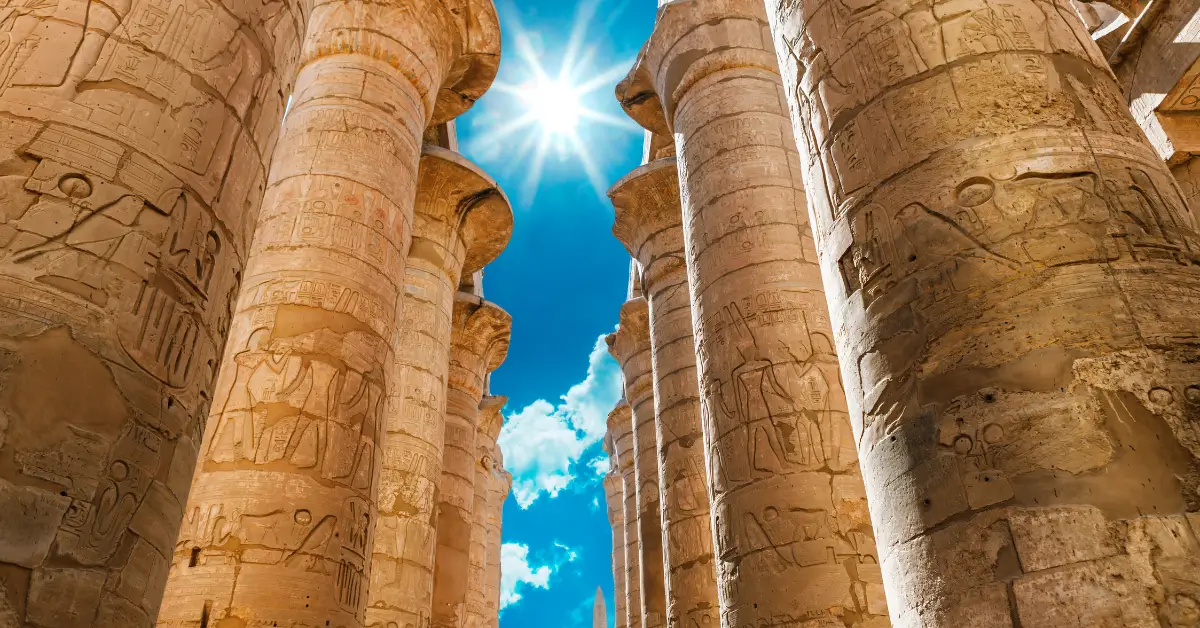Introduction
When we think of international travel, we often associate it with diplomacy, trade, and cultural exchange. Ancient Egypt, a civilization known for its monumental architecture, advanced technology, and rich cultural heritage, also engaged in international travel with neighboring regions and distant lands. The Egyptians traveled for various purposes, including diplomacy, trade, and military expeditions. In this article, we will delve into the mysteries of international travel in ancient Egypt, exploring its different forms, significance, and the enduring fascination with this integral aspect of the ancient world.
The Significance of International Travel in Ancient Egyptian Culture and Daily Life
International travel played a vital role in ancient Egyptian culture and daily life, connecting Egypt with different parts of the world for various purposes. Some of the most important aspects of international travel in ancient Egyptian life include:
- Diplomacy and International Relations: Travel was essential for maintaining diplomatic relations and alliances with neighboring countries and distant lands. Egyptian emissaries and ambassadors traveled to foreign courts to negotiate treaties, exchange gifts, and foster cooperation.
- Trade and Commerce: International travel facilitated trade and commerce between Egypt and other civilizations, enabling the exchange of goods, resources, and ideas. This contributed to the prosperity and economic development of the ancient Egyptian civilization.
- Military Expeditions: Ancient Egyptians undertook military expeditions to protect their borders, assert their dominance, and expand their territory. These journeys required strategic planning and significant resources, including soldiers, supplies, and transportation.
Modes of Transportation and Travel Routes in Ancient Egypt
The ancient Egyptians utilized various modes of transportation and established travel routes to facilitate international travel with other regions. Some key aspects of transportation and travel routes in ancient Egypt include:
- Sea Travel: The Mediterranean and Red Seas were important gateways for international travel in ancient Egypt. Boats and ships played a critical role in connecting Egypt with the Levant, the Aegean world, and the Arabian Peninsula, enabling efficient transportation between different regions.
- Land Travel: Overland travel was also essential for international journeys, particularly when crossing deserts or mountainous terrain. Horses, donkeys, and chariots were common means of land transportation, while camels were used for long-distance desert travel.
- Travel Routes: Ancient Egyptians established a network of travel routes, including maritime routes and overland tracks, to facilitate international travel and communication. These routes connected Egypt with neighboring countries and distant lands, enabling efficient and organized travel across vast distances.
The Enduring Fascination with International Travel in Ancient Egypt
The mysteries of international travel in ancient Egypt continue to captivate historians, archaeologists, and enthusiasts alike. The civilization’s approach to travel and transportation has left an indelible mark on our collective understanding of the ancient world and the development of travel technology. Key factors that contribute to this enduring fascination include:
- Ingenuity and Innovation: The ancient Egyptians’ skill in developing transportation methods and establishing travel routes demonstrates their aptitude for problem-solving and innovation, adapting to the unique challenges of their environment and needs.
- Cultural and Diplomatic Significance: The importance of international travel in ancient Egypt’s diplomatic, economic, and military spheres highlights the integral role it played in the civilization’s interactions with the wider world.
- Impact on Daily Life and Economy: International travel was vital to the ancient Egyptian economy and daily life, enabling efficient diplomacy, trade, and communication with other regions and allowing for the exchange of goods, ideas, and technology.
Conclusion
While the mysteries of international travel in ancient Egypt may never be fully unraveled, its significance in the civilization’s cultural, diplomatic, and economic life remains an intriguing and captivating aspect of the ancient world. By exploring the different forms, methods, and importance of international travel in ancient Egypt, we gain a deeper appreciation for the human ingenuity and innovation that has shaped our understanding of the world throughout the ages. As we continue to delve into the mysteries of international travel in ancient Egypt, we celebrate the spirit of exploration and curiosity that has driven human progress and connected us across vast distances and diverse cultures.


